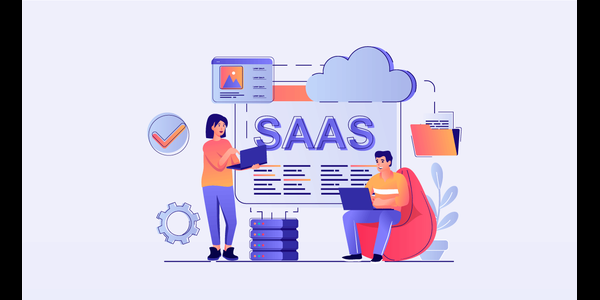
Customs and Trade Compliance for Cross-Border E-Commerce — Overview
I. GST & Customs Compliance for SaaS Companies Selling Online in India
In India’s rapidly growing digital economy, Software as a Service (SaaS) companies have more opportunities than ever — but also more tax and regulatory responsibilities. Whether you’re a startup delivering subscription-based software or an established enterprise selling cloud-based products, you need to navigate GST rules and, in some cases, customs regulations carefully.
This blog breaks down what you need to know if you’re selling SaaS online in India.
1. Understanding GST for SaaS Companies
In India, SaaS is treated as a supply of service under GST law, not goods. This classification is critical because it determines tax rates, place of supply rules, and compliance steps.
Applicable GST Rate
- As per the current GST schedule, most SaaS offerings fall under the category “Online Information and Database Access or Retrieval Services” (OIDAR) and attract 18% GST.
- Even if your SaaS product is hosted overseas, if it’s sold to customers in India, Indian GST rules may apply.
Place of Supply Rules
- If you sell to an Indian customer (B2C) → GST is charged, and you remit it to the Indian government.
- If you sell to an Indian GST-registered business (B2B) → Reverse charge applies most of the time, depending on the transaction type.
- If you sell to foreign customers( IF the seller is an Indian Company ) → It may qualify as an “export of service” and be zero-rated under LUT, but proper documentation is needed.
Compliance Steps for GST
- Obtain GST Registration – Mandatory if turnover exceeds the Rupee 2 million threshold ( Rupee 1 million for special category states) or if you’re an OIDAR service provider. Optional composition for services (incl. SaaS): Available up to Rupee 5 million turnover at 6% (3% CGST + 3% SGST). Not usually chosen by IT/SaaS exporters, but it exists.
- Invoice Correctly – Include GSTIN, HSN/SAC code (generally 9983 for SaaS), and applicable GST rate.
- File Returns – GSTR-1 10th of month (outward supplies) and GSTR-3B 20/22 month (summary return) on time.
- Maintain Records – Keep contracts, invoices, and payment proofs for at least 6 years.
2. Customs Compliance — Do SaaS Companies Need It?
Traditionally, customs compliance is for physical goods imported/exported.
However, for SaaS, there can be indirect customs implications in two scenarios:
- Bundled SaaS + Hardware
If your subscription is sold along with physical devices (e.g., IoT equipment or proprietary dongles), that hardware import will attract customs duty and require clearance through the Indian Customs Electronic Data Interchange (EDI) system. - Software Imported on Physical Media
If software is shipped via CDs, USB drives, or other tangible mediums, customs duty applies (though most SaaS is delivered online today).
For pure cloud-based SaaS, there’s no customs duty — but you must comply with RBI payment regulations for cross-border transactions. Note if the Saas providers is an Indian company better to register under STPI and provide Softex for each export as proof of export.
3. Selling SaaS Online in India — Key Steps
Whether you’re selling via your own website or marketplaces like AWS Marketplace, Zoho, or Google Workspace resellers, here’s what to keep in mind:
a. Tax Setup
- Integrate GST compliance into your billing system.
- Use payment gateways that support GST invoicing.
- For cross-border sales, ensure foreign inward remittance compliance.
b. Legal Agreements
- Have clear terms of service and privacy policies that align with Indian IT Act and data protection laws.
- Include jurisdiction clauses for dispute handling.
c. Payment Compliance
- If accepting payments from abroad, ensure compliance with FEMA and RBI guidelines.
- Maintain proper foreign exchange documentation.
d. Data Storage Rules
- Be mindful of sector-specific regulations (e.g., RBI mandates for payment data localization).
4. Common Mistakes SaaS Companies Make
- Not registering for GST because they think “services” don’t require it.
- Ignoring reverse charge rules in B2B imports.
- Failing to classify sales correctly as “export of service” when serving foreign customers.
- Overlooking hardware-linked customs duty when bundling devices.
5. Final Thoughts
For SaaS companies, compliance is not just a legal necessity — it’s also a trust signal to customers and investors. By following GST rules, keeping an eye on customs in edge cases, and integrating compliance into your operations from day one, you avoid penalties and keep your growth story on track.
Consult with A2consultants as we are familiar with digital businesses. The rules for SaaS are still evolving, especially with India’s push for digital economy taxation.
A2consultants Indian Business Companion is also available on ChatGPT, making it more accessible for Professionals, Businesses, and Foreign Entities seeking insights into the intricate tax challenges you can acess from this link
Book a Free consultation
https://chatgpt.com/g/g-6865f276fc1c8191b467aa48f145a369-a2consultants-india-business-companion.
Scan Here to Know More with ChatGPT





